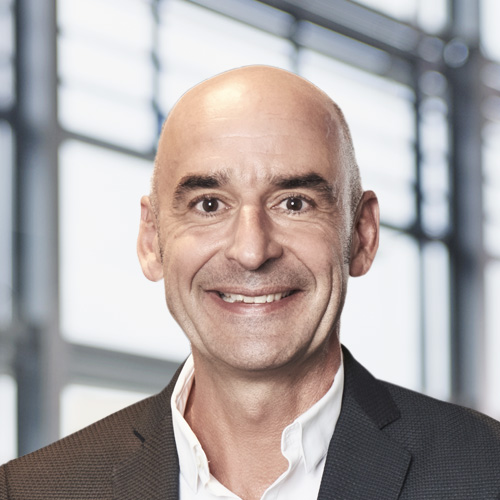
PROUT EMPLOYER Campana & Schott
“Openness and tolerance are here to stay.”
Dr. Christophe Campana is the founder and managing director of Campana & Schott. He has over 25 years of experience in (top) management consulting and is a member of various expert and advisory boards. His main areas of focus include “strategic project and portfolio management” as well as “new forms of collaboration” with a special focus on social collaboration. Dr. Christophe Campana is the author of over 50 publications on the subject of project and portfolio management.
In simple words, Campana & Schott is providing advice to their customers on strategies to keep their finger on the pulse. What role does diversity play here?
Dr. Christophe Campana: Events such as climate change, radicalization, populism, etc. have led to the point that more and more people are concerned with meanings and values. Most people have recognized that “healthy” progress and prosperity cannot be done without moral values and sustainability. Diversity is one of these values and therefore an essential part of this overarching development. Excluding people due to their sexual orientation promotes hatred and prevents a sustainable better future for everyone. There is still a lot to be done here.
Campana & Schott received three awards as a “Great Place to Work”. The list of your commitments towards the diversity of your employees is long and you are building on long-term cooperation instead of “hire and fire”. Has the PROUT EMPLOYER cooperation been the last piece of the puzzle for an open and inclusive work environment?
Dr. Christophe Campana: There will probably never be that one last piece of the puzzle. For us, the cooperation with PROUT EMPLOYER is an important part of our commitment, which we are constantly developing further. I keep learning new things, e.g. only recently the Federal President Steinmeier made a very clear point in the context of the anti-racism riots where he said: “It is not enough to not be a racist. We have to be anti-racists.” This view also applies to me with regard to diversity and our corporate culture. I am convinced that in the future there will always be topics that managers should deal with in the interests of their company: openness and tolerance are here to stay.
“I understood that as an entrepreneur you have to take a visible and public position on this in order to reach out to the community and signal: Live your sexuality as you want: openly or not – both are fine.”
What advice would you give to companies that are just starting their commitment to LGBT*IQ diversity?
Dr. Christophe Campana: At Campana & Schott there have always been employees who have lived out their homosexuality openly. Therefore, homophobia had no place in our company. For a long time, I believed that this was enough. Only later, I understood that as an entrepreneur you have to take a visible and public position on this in order to reach out to the community and signal: Live your sexuality as you want: openly or not – both are fine. But if you want to live it openly, you will not suffer any disadvantage in our company. It’s just a small step, but it does a lot – and only good.
From our experience we know that LGBT*IQ diversity has the greatest impact in a company when executives, diversity management and the company’s corporate networks regularly come together. Is that also your recipe for success?
Dr. Christophe Campana: Yes, I myself regularly meet with our LGBTQ+ network and have learned a lot from these meetings, e.g. the so-called “Monday lie”, when colleagues chat with each other during the coffee break about the last weekend and some prefer to describe their life partner as “a friend”.
I could immediately emphasize the stress associated with this white lie when my employees told me that they had felt like this for very long periods of time, sometimes even years. That is why the close exchange is so crucial: You start to better understand the problems of the community and can actually start changing things more targeted.
The last question: There are turbulent times coming for employees. Considering your commitment to diversity, how would you react to the statement that starting from now, there are more important topics than LGBT*IQ diversity?
Dr. Christophe Campana: There is a difference between the urgency and the importance. The unexpected severity with which the corona pandemic has affected all areas of life resulted in existential challenges for many companies which we will have to deal with. Just because you douse a fire in an apartment doesn’t mean that your general life in the apartment becomes unimportant. This crisis overshadows many issues, which, however, do not become irrelevant – on the contrary: I am convinced that companies with an open and appreciative culture will get through the crisis better. Diversity is an essential part of corporate identity and contributes to the performance and resilience of an organization.
Dear Dr. Campana, thank you for talking to us!
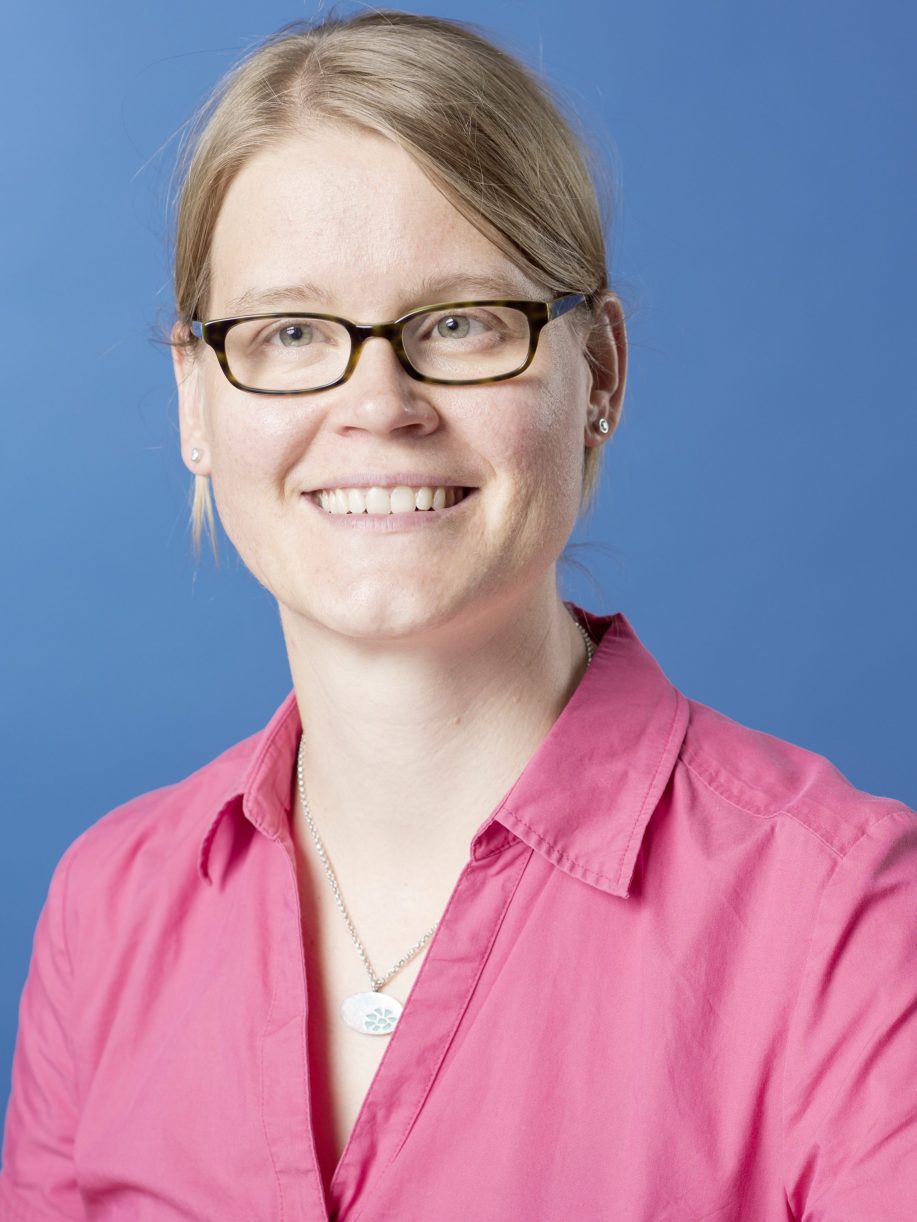
PROUT EMPLOYER Google Germany
“We support you! Now and always! That’s what PROUT EMPLOYER says, and that’s why it’s important to us at Google.”
As Director of Client Solutions, Dr. Jannika Bock is responsible for the sale of Google’s advertising products to major customers in Central Europe. She is the Exec Sponsor of GayglerDE, the LGBTQ+ Community at Google Germany GmbH. Before Jannika switched to Google in 2008, she worked, amongst others, for Axel Springer AG. She did her PhD in American literary and cultural studies, i.a. at Harvard University, and is a member of the digital advisory board of TAKKT AG.
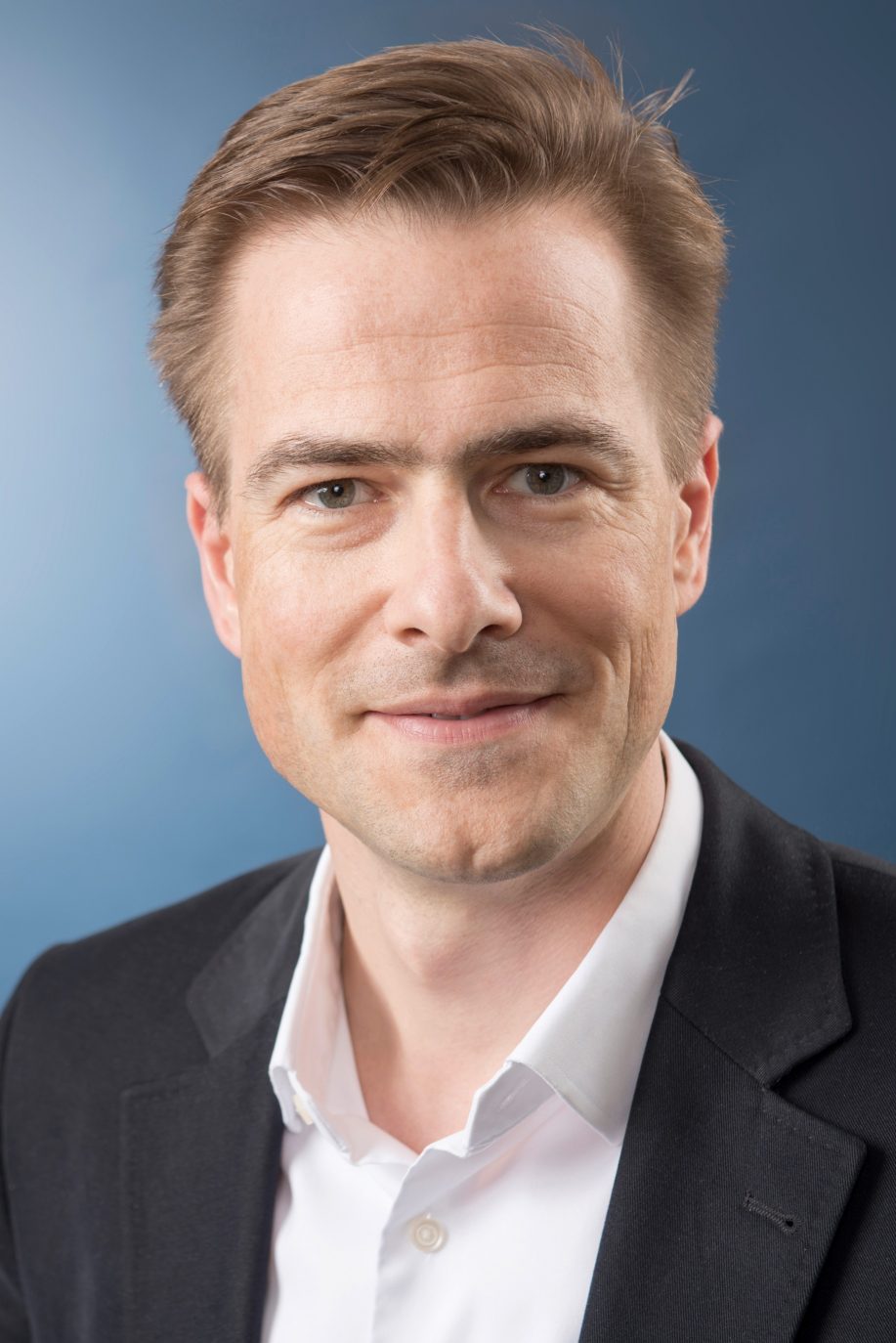
“We want to be a company that promotes diversity and lives integrity and inclusion.”
As Vice President of Central Europe, Philipp Justus heads Google’s business in 36 countries, including Germany, Austria, Switzerland and the CEE countries. Before joining Google in 2013, Philipp was CEO of Zanox, the Berlin performance marketing network, and held various management positions at eBay and PayPal, including VP of Europe, SVP of Auctions and SVP of Global Markets. Philipp studied business administration at WHU in Koblenz and received an MBA from the Kellogg School of Management at Northwestern University.
As a sponsor and member of the foundation’s advisory board, Google has been associated with PROUT AT WORK since the beginning. Why did you decide to become a PROUT EMPLOYER?
Jannika Bock: Currently, it is important to demonstrate to the public that we at Google advocate equality for people in the LGTBQ+ community. This year, the CSD parades were canceled in Germany. As a result, a lot of visibility got lost. We would like to work against this: We support you! Now and always! That’s what PROUT EMPLOYER says, and that’s why it’s important to us at Google.
In order to keep setting new goals as well as keep up with diversity & inclusion, Google also relies on the possibility of self-identification, e.g. as trans *, non-binary or LGBT*IQ. Can data really depict the people behind your employees?
Philipp Justus: We want to be a company that promotes diversity and lives integrity and inclusion. We want our employees to picture the diversity of our users – this is the only way we can develop products that are actually accessible and usable for everyone. We want to create an environment for our employees in which they affiliate themselves with. This includes demonstrating the diversity of our workforce which is, for example, possible through the process of voluntary self-identification.
“In Germany there are still many, many people who cannot be themselves at work.”
Covid-19 somehow surprised all of us and we now have to deal with it. In your opinion, why does diversity and especially LGBT*IQ diversity has to remain in the focus?
Philipp Justus: In this PRIDE season, digital media have been more important than ever – for the first time, on YouTube with PRIDE LIVE there was a German-wide, completely virtual PRIDE event on June 27th 2020, attended by politicians, companies(such as Google), and many activists from the scene. There has been a space created to come together – a space that, unfortunately, couldn’t be on the streets this year.
Where do you see the major challenges for LGBT*IQ in the workplace in the coming years?
Jannika Bock: In Germany we often encounter the fast assumption that everything has been achieved and that there would be no discrimination against members of the LGBTQ+ community anymore – especially not in companies that actively campaign for greater diversity. However, this does not correspond to reality. In Germany there are still many, many people who cannot be themselves at work. There are people who hide their (sexual) identity from colleagues and superiors – for fear of discrimination and who are exposed to “micro aggressions” in form of taunts and hidden jokes. That has to stop!
Dear Jannika Bock, dear Philipp Justus, thank you very much for the interview!
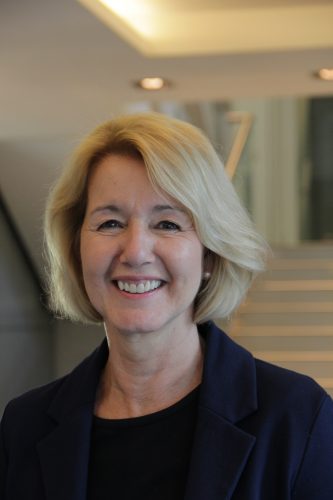
PROUT EMPLOYER REWE Group
“We are best able to solve a task when we view it from multiple perspectives.”
Dr. Petra Meyer-Ochel (62), born on the Lower Rhine, graduated with a PhD in business administration from Cologne University. She then worked in personnel and management development for various retail companies, followed by 11 years as a freelance consultant. Since 2015 at REWE Group, responsible for the CoE Personnel Development in Retail Germany as well as many topics of the sustainability pillar Employees.
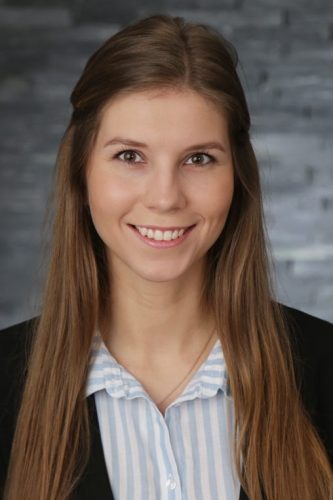
“It’s important to us to accommodate the interests, wishes and ideas of all our employees […].”
Kaja Gut (27), born in Frankfurt am Main. Studied in Darmstadt, graduating in 2019 with a master’s degree in psychology with specialisations in business und personnel psychology as well as occupational and engineering psychology. Has been working for the Employer Branding team at REWE Group Headquarters in Cologne since 2019, where she is responsible for REWE Group certifications, among other things.
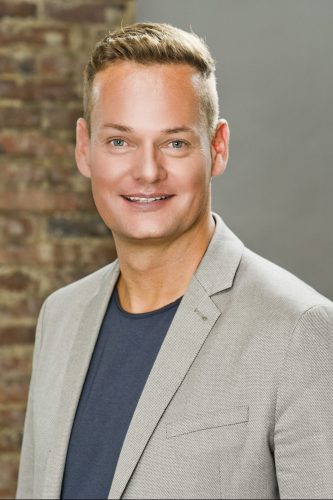
“Without all those supporters all the way up to the executive level, a network like di.to.”
Frank Bartels (46), born in Lower Saxony, trained as a hotel manager in Hamburg before moving to Cologne in 1998 where he has been working for REWE Group for over 21 years. Responsible for event & travel management. In 2013, he initiated the LGBT network di.to. (different together) within REWE Group and is one of its two spokespeople. The network comprises about 300 employees nationally and exists in both Germany and Austria.
Top Employer in Germany with an extraordinary focus on employees for six years in a row, certified as a top training provider with the BEST PLACE TO LEARN label and recognised as an employer with a focus on balancing work and family. Was the REWE Group’s step to become a PROUT EMPLOYER a logical consequence? What motivated REWE to do so?
Katja Gut: It’s important to us to accommodate the interests, wishes and ideas of all our employees, regardless of gender, nationality, ethnic or social background, religion/beliefs, disability, age or sexual orientation. For us, focusing on our employees is essential, so we’re always looking to add further programs to our portfolio that could be helpful to our employees as well as potential applicants. As a PROUT EMPLOYER, we now have taken another important step, including with regards to supporting and positioning our LGBT network di.to (di.fferent to.gether).
What are your goals for the PROUT EMPLOYER cooperation?
Katja Gut: Through our network di.to, we are already actively promoting more tolerance and acceptance in the workplace, regardless of sexual orientation. We expect the PROUT EMPLOYER cooperation to add new input in this area, help extend our network and allow us to work on innovative ideas together. We are looking forward to learning new things, exchanging views with employees from other industries and sharing experiences. It’s great to meet like-minded people who support LGBT projects with the same passion we do.
“It’s important to us to be able to work as transparently as possible and keep drawing attention to our campaigns and events wherever we can: for example, involving all our colleagues at REWE Group in our participation at the 2019 Cologne CSD.”
Petra, you believe that the teams of the future will be mixed and diverse and you align your strategies accordingly. How is this idea being lived at REWE Group? And how can LGBT*IQ talents benefit from this philosophy?
Dr. Petra Meyer-Ochel: At REWE Group, we have mixed teams in our supermarkets as well as in our central locations – professionally, individually and with regards to the above-mentioned diversity dimensions. We are best able to solve a task when we view it from multiple perspectives. And you get these multiple perspectives when you make sure your teams are diversified. To start with, this often means more effort because all the different opinions need to be heard and exchanged. Communication is more complex as well, for example when a colleague from Retail sees things differently from someone who works in administration. But it always pays off in the end. Mixed teams frequently debate and discuss ideas that wouldn’t even have come up in a more homogeneous team. I am firmly convinced that diverse teams are more creative and make better decisions in the long term.
LGBT*IQ talents can benefit just like anyone else: openness for other people’s ideas, mutual respect and results that have been achieved together strengthen both the individual and the entire team.
Frank, in REWE’s advocacy for equal opportunities for LGBT*IQ, network and executive level work closely together, with numerous supporters in between. Is that the secret recipe for LGBT*IQ diversity within the company?
Frank Bartels: Yes, absolutely. Without all those supporters all the way up to the executive level, a network like di.to. wouldn’t have any clout whatsoever. Shortly after the network was founded in 2013, our current CEO and then-director Lionel Souque became our patron. That gave our network tremendous momentum and opened every door within the REWE Group. However, it should also be noted that acceptance within our company was – and still is – huge from the beginning and we we’ve always been able to approach various contact persons within REWE Group with our concerns at any time. It’s important to us to be able to work as transparently as possible and keep drawing attention to our campaigns and events wherever we can: for example, involving all our colleagues at REWE Group in our participation at the 2019 Cologne CSD. We don’t want to be on the sidelines, but we don’t want to be perceived as an elitist group either. So the 2019 CSD motto “Many.Together.Strong.” unwittingly became a maxim for working together at REWE Group.
From your perspectives, what advice would you give companies who are at the very beginning of their work for LGBT*IQ diversity?
Frank Bartels: As discussed, backing from an executive or from other straight allies is essential as far as LGBT networks are concerned. It gives you support, strength and self-confidence, in particular while the network is still in its infancy. Outwardly, LGBT/diversity should be an issue close to your heart, i.e. an issue that you’re comfortable promoting throughout the entire year rather than pinkwashing during Pride season. The fact that we display rainbow stickers at the entrances to our REWE and PENNY supermarkets, our toom hardware stores and our DER travel agencies positions us very credibly in this regard.
Thank you very much for the Interview!
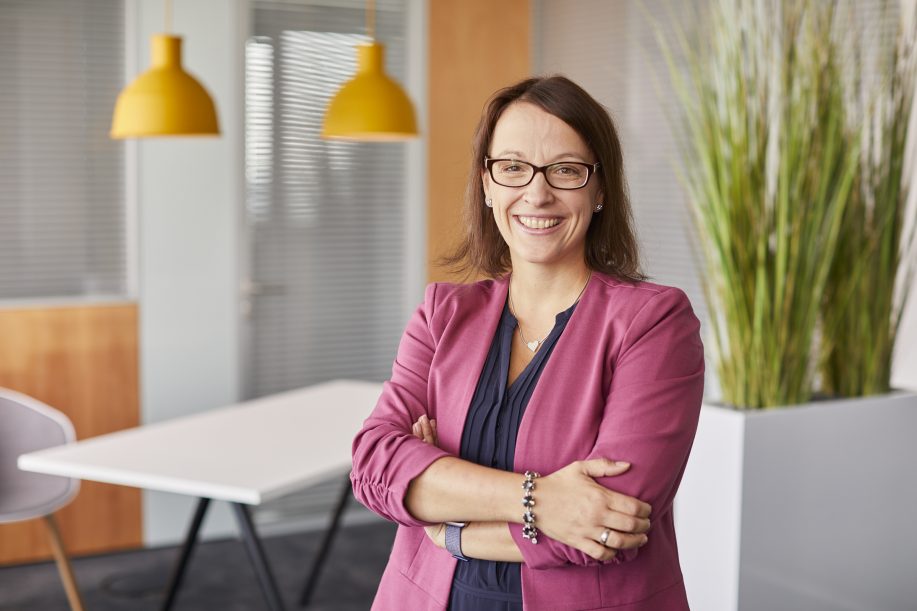
PROUT EMPLOYER METRO
“My goal is that in ten years we no longer have to talk about diversity and inclusion because both of these things have simply become part of life – in all areas of society.”
Laura Halfas worked for various trading and consulting companies in the areas of purchasing, distribution and IT before she joined METRO in 2008. She started in the Supply Chain Management IT area and then moved to Customer Marketing IT. Seven years later, Laura Halfas, who has a bachelor’s degree in trade and commerce, became the team leader of eCommerce, Marketing Operations & Traceability. At the end of 2017, she ultimately took over the position of Head of Corporate Responsibility. She focuses on diversity and inclusion as well as corporate citizenship.
Ms Halfas, METRO AG is clearly a very active PROUT EMPLOYER. In what specific ways does METRO champion more equal opportunities for LGBT*IQ people?
Laura Halfas: METRO was one of the first wholesalers to sign the UN Free and Equal Standards of Conduct for Business, which ensure that all employees are “free and equal”. We also have METRO Pride, a very strong internal network. This year, the Diversity & Inclusion Days took place for the first time at our campus in Dusseldorf to spark our employees’ interest in the topic of diversity. And METRO was again represented at Sticks & Stones in 2019, the largest LGBT+ careers fair in Europe.
Which initiatives are you personally particularly proud of?
Laura Halfas: We at METRO initiated a position paper on the issue of blood donation because the guidelines are discriminatory. For example, homosexual men are generally assumed to engage in risky behaviour irrespective of their actual sexual behaviour and their life situation. It would be great if, together with PROUT AT WORK, we could achieve a position paper that was adopted by German businesses. That’s why I would again like to take the opportunity to invite businesses to participate in this initiative.
“Working for equal rights is what drives me. At first, I only focused on gender equality, but then I realised that there are many areas in which there is no equality.”
As Head of Corporate Responsibility, it is your duty to ensure that METRO AG fulfils its corporate responsibility for the environment and society. In your view, what responsibility do businesses have when it comes to equal opportunities for LGBTIQ people?
Laura Halfas: We are a people business and we work with people throughout our entire value chain. As a global company with more than 150,000 employees in 36 countries, it’s our duty to ensure that all people are treated equally and not discriminated against – be they METRO employees, service partners, suppliers or customers.
In what specific areas are you hoping for support from PROUT AT WORK?
Laura Halfas: I and a lot of my colleagues appreciate the networking and dialogue with PROUT AT WORK. The foundation has considerable experience and know-how. For example, it constantly provides us with new impetus to drive forward cultural change within METRO and make our jobs even more open and less susceptible to discrimination. What’s more, our activities are becoming visible outside the company. And as I said, our motto when it comes to the position paper on blood donation is: together we can do it!
You immediately agreed to an interview with us – thank you again! To what extent are equal opportunities for LGBTIQ people an issue that is close to your heart?
Laura Halfas: Working for equal rights is what drives me. At first, I only focused on gender equality, but then I realised that there are many areas in which there is no equality. My goal is that in ten years we no longer have to talk about diversity and inclusion because both of these things have simply become part of life – in all areas of society. However, there are still many areas in which LGBT+ issues need to be addressed. People are still being discriminated against. I want to change this. Everyone should have the opportunity to be who they are.
Ms Halfas, many thanks for talking to us!
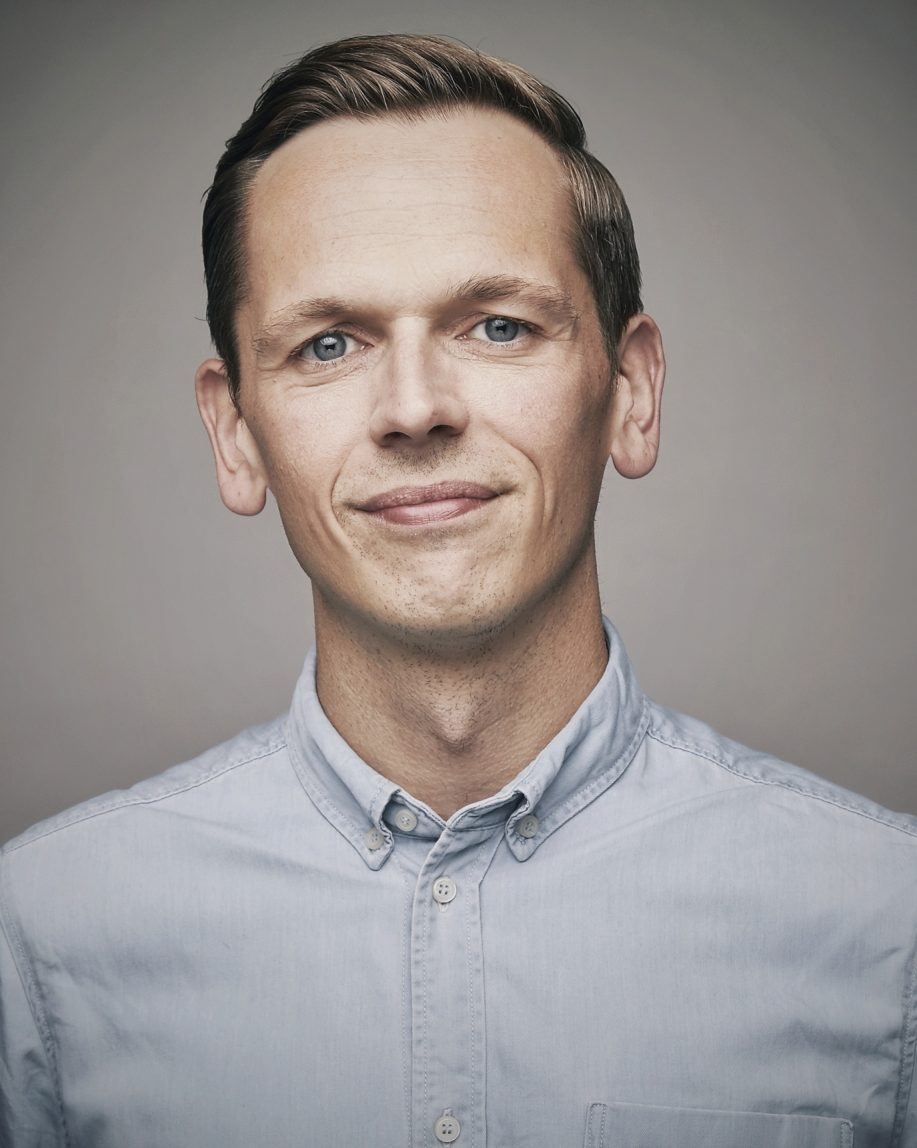
PROUT EMPLOYER OTTO
“That’s why for me, MORE* is a very clear signal to the outside world – a signal that shows that in the Otto Group we will […] continue to be a liberal-minded, tolerant corporate group of many colours.”
Ingo Bertram is OTTO’s press spokesman and co-founder of MORE*, the Otto Group’s LGBTIQ network. Previously, Mr Bertram, who was born in Bremen, was head of Corporate PR & Content in the corporate communication department of the logistics service provider Hermes and worked as a PR consultant for international brands and groups.
You’re a very young network – only founded in 2019. Tell us how your initial idea led to the network being formed and how the first activities came about.
Ingo Bertram: The Otto Group has long been a supporter of diversity – explicitly including LGBTIQ. A good example of this is our cooperation with Hamburg Pride, which started in 2017. Nevertheless, the Group had no official structure that specifically allowed LGBTIQ people to join together and that promoted queer topics and coordinated activities. Nor was there a central voice representing the interests of our queer colleagues. This is precisely why in May 2019 we established MORE*, a queer network in the Otto Group. At the end of July, to coincide with Hamburg Pride Week, we officially launched the network – and the first thing we did was turn the OTTO campus into a sea of rainbows, including a rainbow zebra crossing and a huge rainbow cake, through a range of activities. Incidentally, the zebra crossing is now a permanent feature on our campus, as is the rainbow flag in front of our main entrance. The cake, however, was gone within two hours!
“Whether MORE* will be a lasting success in the Otto Group depends primarily on how deeply we can anchor our vision in the group and in the mindset of our staff.”
Which challenges did you face? Where did you get support from?
Ingo Bertram: Right from the time we established the network, we received a delightful amount of encouragement and support, not only from direct colleagues, but explicitly also from the highest management levels. I sometimes had the impression that many people were merely waiting for a queer network to finally be launched. Ultimately, our biggest challenge was therefore not only to officially establish the network within a few weeks, but also to organise a launch that met our own high standards – and to do all this without neglecting our main jobs. I was blown away by the fact that we had already got more than 150 MORE* supporters within 48 hours of the official launch on 29 July.
With Gesa Heinrichs as Executive Sponsor, you have an enormously committed person on board. To what extent does this help you in your work?
Ingo Bertram: Whether MORE* will be a lasting success in the Otto Group depends primarily on how deeply we can anchor our vision in the group and in the mindset of our staff. A prerequisite for this is that we can motivate as many colleagues as possible to help shape the work of our network proactively and drive forward ideas. Of course, it’s helpful for MORE* to also have committed members and supporters at higher management levels, such as Gesa Heinrichs or our patron Katy Roewer, the member of OTTO’s management board with responsibility for Service & HR. This gives us better access to top management and can make coordination easier. What is ultimately decisive, though, is that our ideas, visions and wishes take hold within the company, irrespective of any hierarchies. And for this goal we need every single person.
Why is supporting LGBT*IQ people a matter that is close to your heart?
Ingo Bertram: I’d like to answer this question both from a personal view and from the perspective of society as a whole. Speaking personally, the answer is obvious because – just like many other initiators and supporters of MORE* – I am queer myself and naturally I want to work in a company that treats its employees equally without reservation, regardless of gender, religion, skin colour or sexual identity. However, this always works best when there are people in a company who are committed to diversity and set a good example. This is precisely what we want to do with MORE*.
On the other hand, what’s at least as important to me is the appeal such a commitment can have beyond one’s own job. In Germany and in many other countries, we are experiencing a partial rollback of society. Right-wing populist ideas are gaining influence, mostly at the expense of minorities, and these include not only refugees, Muslims or Jews, but also queer people. I can’t and won’t stand by and watch this happen, either in my personal life or at work, and this is how many others here feel, too. I am convinced that in this discourse, companies have a growing social responsibility and must actively take a stand in favour of diversity. That’s why for me, MORE* is a very clear signal to the outside world – a signal that shows that in the Otto Group we will not surrender to this rollback and will continue to be a liberal-minded, tolerant corporate group of many colours.
What are the next steps, and what are your wishes and goals for the network?
Ingo Bertram: Globally, more than 50,000 people work for the Otto Group. The biggest challenge and thus the most important goal for us will be to reach as many of these people as possible. This sounds trivial at first, but it isn’t. In the coming months, we will therefore begin by redoubling our efforts to build up an internal network between our more than 120 group companies, both digitally and using regular dialogue formats. At the same time, we want to promote awareness of queer topics internally in various areas, whether it’s in marketing and purchasing, in our online shop teams or in the recruiting process. I think we’re already on the right track.
Many thanks for talking to us, Ingo!
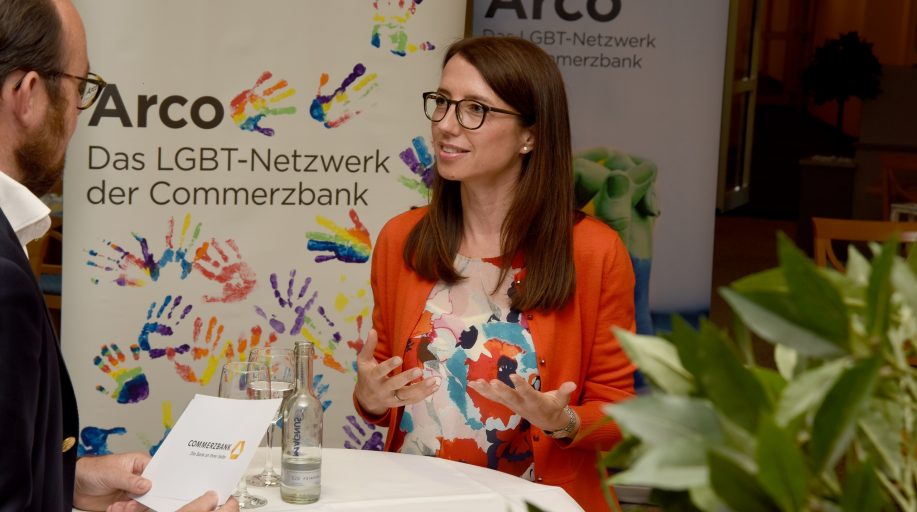
PROUT EMPLOYER Commerzbank
“It has to become normal for heterosexual and homosexual people to be able to interact in a relaxed way with one another – in both directions.”
Jenny Friese, the board member with responsibility for private and corporate clients in the East region, was born in Berlin and completed an apprenticeship in banking at Deutsche Bank. Since 1999, she has held various management roles. In 2007, she moved to Commerzbank and became head of the Berlin City-West region. Later, she headed up wealth management in Berlin and eastern Germany. Since 1 February 2015, Jenny Friese has been the board member with responsibility for supporting private, corporate and wealth management clients in the market region East.
Ms Friese, Commerzbank marked the 7th German Diversity Day in late May with numerous activities nationwide. The market region East has been particularly active in 2019 – why is that?
Jenny Friese: Because diversity is just unbelievably important to me! For four years, I have been a member of the Global Diversity Council for the Private and Corporate Clients segment (see info box) and in this capacity I would like to be a role model and offer guidance, especially on the topic of “women in management”. In particular during challenging times, it is important to understand, accept and support people, with all their differences and strengths. On Diversity Day, we invited colleagues and clients to an evening event with a very interesting panel for a stimulating discussion on the topic of “Why is a commitment to LGBT issues a success factor for companies?” The feedback showed that this first step of our “Journey to Berlin” attracted people’s attention.
“For me, „living diversity“ is a personal conviction. It enables us to perform better and makes us more creative and at the same time more human.”
You mention the “Journey to Berlin”. What is that?
Jenny Friese: Over the course of my career, it has become clear that heterogeneous teams are usually the more successful ones. It was therefore important to me to further develop this approach. However, having diversity “decreed” as part of the human resources strategy is not enough – I make the case for managers at Commerzbank taking an interest in the issue, being tolerant and open and showing this in their everyday work. This is the only way that everyone at our bank can feel comfortable and develop themselves fully. In addition, employee networks help to support such a corporate culture and to offer new perspectives through people sharing their own experiences. When the spokesman for our employee network Arco (see info box), Holger Reuschling, asked me late last year whether I would be willing to take on the role of patron championing the issue of LGBT even more strongly within senior management, my interest was quickly sparked. From the initial discussions, joint ideas were developed, which were implemented conceptually this year in the “Journey to Berlin”. The term “journey” has a symbolic meaning. We are setting off with different events in order to make the issue visible and ensure an environment that is free of discrimination.
At the events held to date, you emphasised several times that living diversity is “close to your heart”. How do you show your commitment personally?
Jenny Friese: For me, “living diversity” is a personal conviction. It enables us to perform better and makes us more creative and at the same time more human. All of this is good for our personal and professional development. As managers, we can set an example here, too, and make a difference. For that reason, I personally attend many events, raise awareness of the issue and seek dialogue with others. In my current role, I have the opportunity to lend even more weight to my messages and ensure even greater attention is paid to the topic of diversity. Prejudices are not entirely unfamiliar to me either. Therefore, I feel obliged to make the case for openness and tolerance. It has to become normal for heterosexual and homosexual people to be able to interact in a relaxed way with one another – in both directions.
What advantages does such a culture of openness bring to Commerzbank and its clients?
Jenny Friese: As a company we in fact benefit very much from this. Studies show that employees’ performance is significantly higher if they are in a working environment that is free of prejudices. When searching for the best talent, we present ourselves as an open, modern and tolerant company. It has been proven that young LGBT job seekers pay very close attention to these values when choosing an employer. In addition, teams that maintain a culture of openness tend to be willing to tread new paths and to advance innovations. Our clients are making similar observations. Purchasing decisions are often influenced by how a company is perceived. When it comes to having a welcoming culture, we know from experience that LGBT people as well as their family and friends are particularly sensitive. At the same time, the group is considered particularly lucrative in terms of its purchasing power.
“LGBT is not a private attitude, but rather a sexual orientation that a person does not choose. This mistake very often leads people in the wrong direction. It is precisely for this reason that I can only recommend that everyone comes to grips with this issue.”
Sounds encouraging. On the other hand, studies also show that, compared to other countries, young employees in Germany in particular are less likely to take the risk of coming out. They are afraid it will disadvantage them in their careers. This is the case despite all the efforts made to promote diversity. What are we still doing wrong here?
Jenny Friese: Traditional corporate structures often cannot be changed overnight. And it is important in this process to include all levels of management, to raise their awareness, educate them and break down inhibitions. The colouring of our logo during the Christopher Street Day season in 2018 and the lively discussion of this that took place on Comnet showed that, despite our culture of openness, there are still a lot of reservations and unease. The activities are often aimed solely at the LGBT target group. However, shared events and measures such as the “Journey to Berlin” help to overcome these difficulties. To do this, we also need people who have the courage to go public and thus act as role models for other colleagues.
Is one of the reasons for this perhaps that sexual orientation is seen as a private matter?
Jenny Friese: LGBT is not a private attitude, but rather a sexual orientation that a person does not choose. This mistake very often leads people in the wrong direction. It is precisely for this reason that I can only recommend that everyone comes to grips with this issue. A homosexual person who won’t come out for fear that it will damage their career will never introduce the person they love to their colleagues and will always have to lie during conversations about the weekend or holidays. It’s not about discussing sexual preferences. But while male heterosexual colleagues can have a picture of their wife on their desk and can bring her to evening events or shared team activities, this normality is denied to a homosexual colleague who is not out. However, being able to openly talk about one’s private life is part and parcel of a human and positive environment. Arco’s experiences have made it clear to me once again that, in our company, too, there are still people who are not living openly and who do not disclose their sexual orientation to colleagues and, above all, to their supervisors. Despite the culture of openness, there are still no high-level managers who, through their visibility, can resolve the supposed contradiction between being out and having a successful career.
And how do you see the future? Where will we be on the 10th Diversity Day in three years’ time?
Jenny Friese: My wish is that by then we can successfully make the case for diversity. In addition, it would be fantastic if more and more people – regardless of their sexual orientation – take an interest in one another and interact with each other in an open, tolerant manner at every level and in every direction.
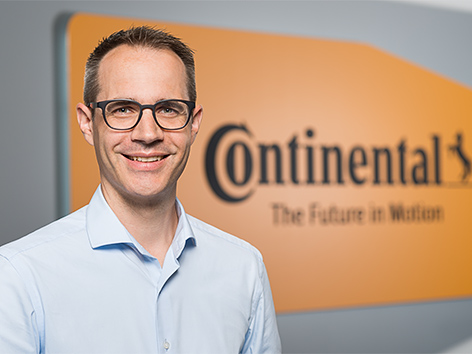
PROUT EMPLOYER CONTINENTAL
“We want to send a clearly visible signal internally and externally that the topic of equal opportunities is dear to us.”
Matthias Metzger is the current Human Resources Manager of the tyres business division at Continental in Hanover. After studying business in Stuttgart and Hamburg and completing an MBA in Newcastle, he began his career in 2002 as an international trainee at Daimler. In 2005, he moved to Continental, where he has held various management roles in HR in Germany and the USA, including Business Partner, Head of Shared Services NAFTA and Head of Corporate Talent Management & Organizational Development.
Mr Metzger, as head of HR, one of your duties is to act as a bridge between job applicants, employees and management. What experiences regarding equal opportunities for LGBT*IQ people have you had to date in your role?
Matthias Metzger: In recent years, our commitment to a diverse workforce has increased considerably, including with regard to LGBT*IQ people. For example, we have introduced a standardised testing procedure worldwide for our recruitment of salaried employees. This means that, even before the other documents are reviewed, an initial preselection takes place in which prejudices cannot influence our decisions. We want the best fit! In addition, we have held diversity workshops to raise awareness among all our managers worldwide and ask our staff for feedback on the issue of equal opportunities in our annual employee survey.
Having started its cooperation with us in 2019, Continental is one of the newer PROUT EMPLOYERS. What activities have there been to date in your company in relation to LGBT*IQ people in the workplace?
Matthias Metzger: The topic itself is not new to our company. However, in 2018, we decided to highlight it in a more proactive way. The first step was to hold regular meet-ups at our major locations in Regensburg and Hanover as well as regular participation in Sticks and Stones. For 2019, we are planning further activities, including a dialogue format with our HR board member Ariane Reinhart, Albert Kehrer and a number of LGBT*IQ colleagues, who will report on their experiences in the company.
“If, as a company, we can successfully address equal opportunities for LGBT*IQ people, which is a sensitive topic for many, we will have taken a major step towards real diversity in practice.”
What prompted you to become a PROUT EMPLOYER and what do you hope to gain from our joint cooperation?
Matthias Metzger: We want to send a clearly visible signal internally and externally that the topic of equal opportunities is dear to us. PROUT AT WORK provides a great framework for this because it increases visibility on the one hand while, on the other hand, offering different dialogue formats that allow us to learn from other companies.
You immediately agreed to an interview with us – thank you again! To what extent are equal opportunities for LGBT*IQ people a matter close to your heart?
Matthias Metzger: If, as a company, we can successfully address equal opportunities for LGBT*IQ people, which is a sensitive topic for many, we will have taken a major step towards real diversity in practice. This liberal spirit will then translate into acceptance of other lifestyles and working models, thus benefitting everyone. And it helps us to make taboo issues that are more pronounced in some countries easier to get to grips with. I firmly believe that every employee has the right to be successful – in their own unique way. And this requires a corporate culture that promotes and values diversity.
At Continental, you’ve really turned the application procedure on its head. One of the reasons you rely on diagnostics instead of CVs is that you want to promote fairness and diversity. To what extent do you think LGBTIQ applicants in particular could benefit from this?
Matthias Metzger: The replacement of our old application procedure is an initiative that many people worked on – and that also met with resistance and doubts to begin with. It has been scientifically proven than school and university grades are not a predictor of professional success, yet many human resources managers cling to them because they apparently make comparisons so easy. At Continental, we want to give all applicants a chance and ensure the best fit between the candidate and the job in each case. This can only be achieved through objective testing methods.
Mr Metzger, many thanks for talking to us!
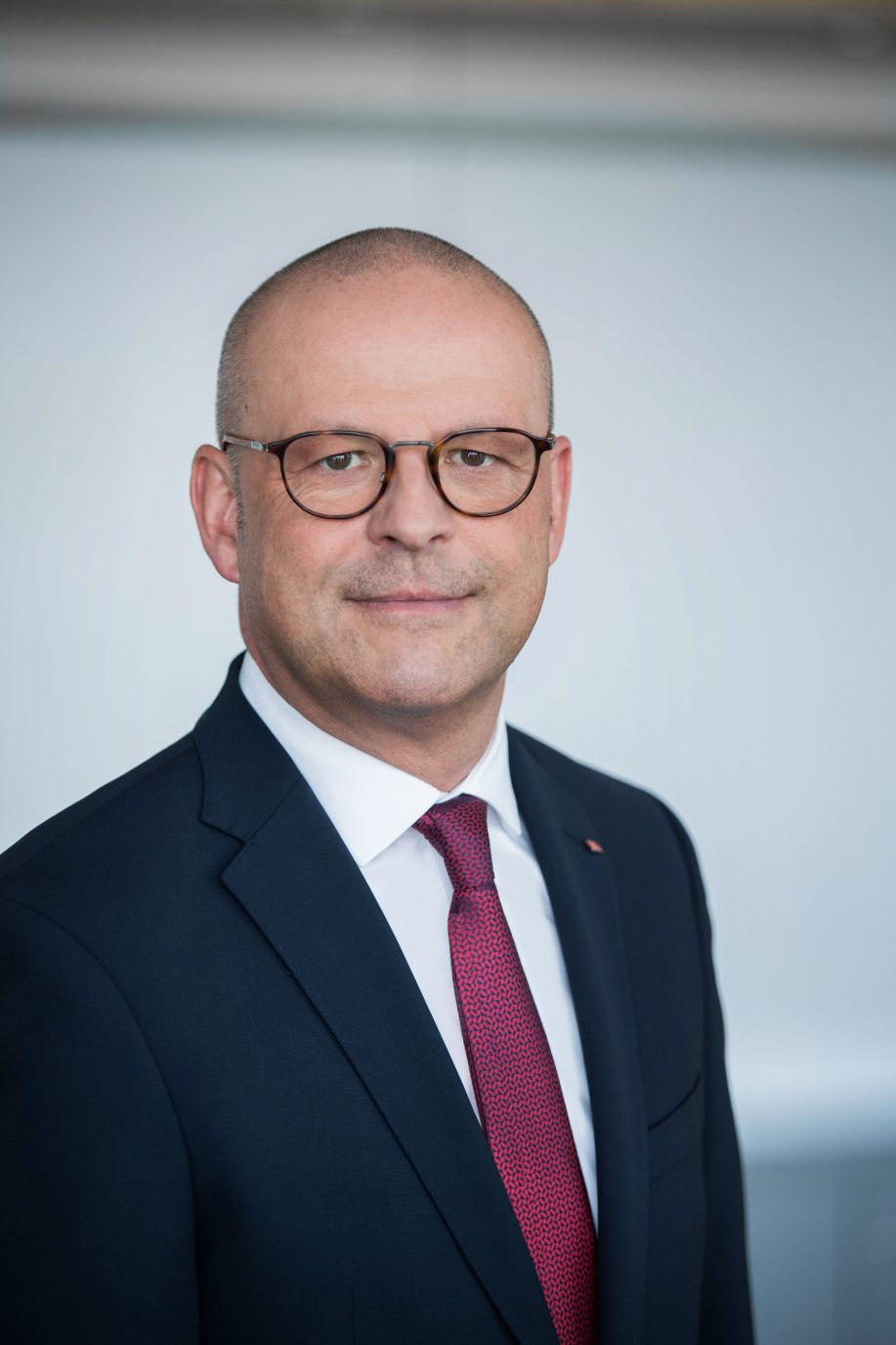
PROUT EMPLOYER Deutsche Bahn
“I am convinced that we need the potential of this diversity more than ever to develop the innovative strength that is required today and to perform better as a company.”
Martin Seiler has been the member of Deutsche Bahn AG’s management board with responsibility for human resources and legal affairs since 1 January 2018. Previously, he held a variety of HR positions at Deutsche Telekom, most recently director of human resources and industrial relations in 2015. In that role, he was responsible for 70,000 employees at Telekom Deutschland. As management spokesperson for Telekom Training, he was responsible for all trainees and cooperative education students in the group. He started his career at Deutsche Post in Baden-Baden in 1980. After working in different parts of the company, including for the German Postal Workers Union – which would later merge into ver.di, the German United Services Trade Union – where he also served as a member of the European Commission’s Social Dialogue, Martin Seiler took on various management positions at Deutsche Post in Bonn from 2003 onwards.
Mr Seiler, in January 2018 you took up your new role, Deutsche Bahn AG’s management board member responsible for HR. A strong focus of your current activities is on recruiting. To what extent do you think LGBT*IQ talent in particular could benefit from this?
Martin Seiler: It’s true that our recruitment is currently at a record level: in the past year alone, we welcomed more than 24,000 employees to the group. These are new colleagues who add to the great diversity of our workforce in all respects: age, ethnic origin, religion, gender as well as sexual orientation. We value this diversity and believe that it enriches our company. Our current employer campaign is called “Welcome, you fit in well” and represents exactly this openness. All motivated applicants are very welcome, irrespective of their sexual orientation, gender identity and ethnic origin.
What activities has Deutsche Bahn offered so far relating to LGBT*IQ in the workplace?
Martin Seiler: There a lots of examples. For instance, we were a pioneer in recognising registered partnerships: all arrangements regarding benefits for spouses of our employees (e.g. travel benefits, exemption arrangements and allowances) have also been applied to registered partners. We concluded an anti-discrimination agreement with the works council that covers both everyday cooperation and career opportunities. Our aim is to have a corporate culture in which homophobia and transphobia do not exist. That’s why I am very proud that DB employees are among Germany’s Top 100 Out Executives. We support our internal LGBT employee network “railbow” and are also active outside the company: we’ve taken part in the CSD parades for years and last year we decorated Berlin main station for the first time with flags during Pride Week.
“As a group comprising 200,000 employees in Germany alone, we have been championing equal opportunities, appreciation and respect for many years, and as the member of the management board for human resources and legal affairs, I am constantly impressed by the diversity of our workforce.”
Deutsche Bahn is part of the PROUT EMPLOYER cooperation. In your view, what are the objectives pursued by Deutsche Bahn with this cooperation?
Martin Seiler: Being a member of PROUT AT WORK enables us to provide specific and practical support to our employees if they decide to come out at work or with networking. We want to put them at ease, give them the chance to talk to each other and encourage them to tell us when something isn’t working so well. The numerous events and publications of PROUT AT WORK also enable us to expand our expertise relating to LGBTIQ issues in the workplace and spread new impetus within DB.
Your strong focus on HR and recruitment indicates that your colleagues have a special importance to you. To what extent are equal opportunities for LGBT*IQ people also a matter close to your heart?
Martin Seiler: As a group comprising 200,000 employees in Germany alone, we have been championing equal opportunities, appreciation and respect for many years, and as the member of the management board for human resources and legal affairs, I am constantly impressed by the diversity of our workforce. I am convinced that we need the potential of this diversity more than ever to develop the innovative strength that is required today and to perform better as a company. Last but not least, our customers benefit from an open, appreciative culture in which employees do not hide their sexual orientation and feel comfortable in their workplace.
Mr Seiler, many thanks for talking to us!
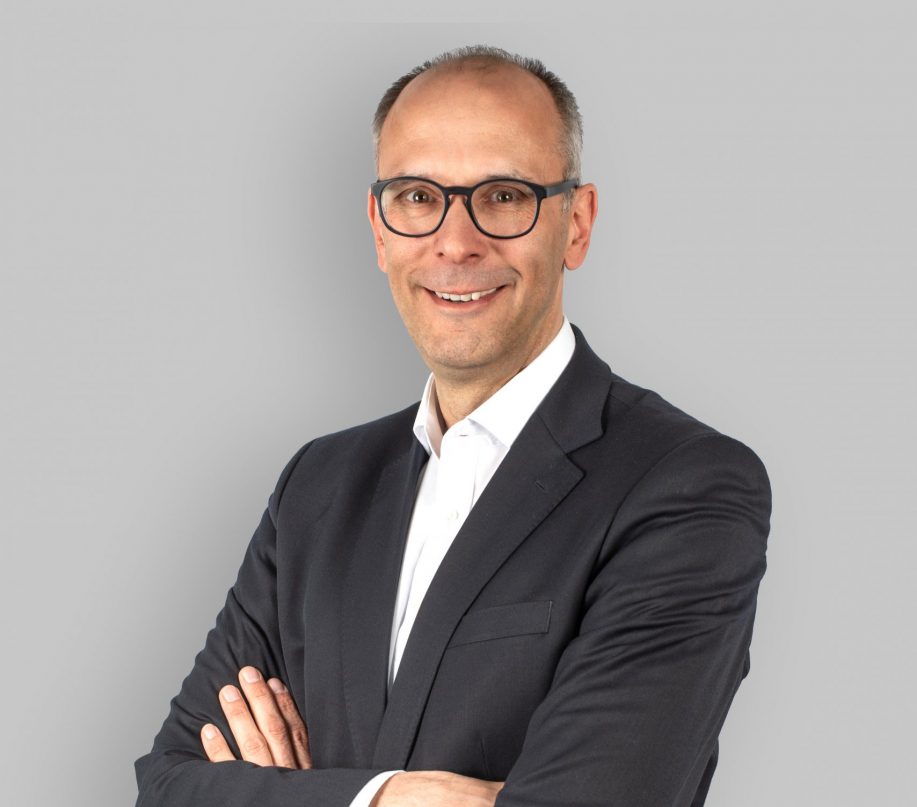
PROUT EMPLOYER Vinci Energies Deutschland
“As the Group’s German division, we also want to take a stand and to position ourselves clearly against discrimination.”
Stefan Falk, who was born in 1968, has been head of the Fire Protection Solutions Group since 2005. After completing his engineering studies, he started his career in 1994 at a large provider of fire protection solutions, which he left after six years in various management positions. In 2001, he joined Calanbau Brandschutzanlagen GmbH and was appointed as its managing director in 2004. Under his leadership, additional companies were acquired in the same market segment and consolidated in the Fire Protection Solutions Group.
On 1 January 2016, Stefan Falk was appointed as managing director of VINCI Energies Deutschland Schutzsysteme and became chairman of the management of the G+H Group.
Since 2017, he has been managing director of VINCI Energies Deutschland together with Frank Westphal.
What prompted you to become a PROUT EMPLOYER?
Stefan Falk: Our VINCI Group pursues a determined policy of equality that takes action against any form of discrimination in employment and occupation. Diversity is valued and promoted at VINCI. As the Group’s German division, we also want to take a stand and to position ourselves clearly against discrimination.
Can you tell us about an initiative regarding equal opportunities in the workplace for LGBTIQ people that has already been successful in your company?
Stefan Falk: Specifically, we supported a person on their journey to coming out. We would like to offer all employees equal opportunities and give them the chance to come out and be able to communicate openly.
“We want to demonstrate that this issue is important to us. Equal opportunities is not just a slogan, but something we commit to every day.”
How are you hoping to get specific support from PROUT AT WORK?
Stefan Falk: We would like to use the network to share experiences with other companies and to be able to continue to make progress ourselves.
What objectives are you pursuing with the PROUT EMPLOYER cooperation?
Stefan Falk: We want to demonstrate that this issue is important to us. Equal opportunities is not just a slogan, but something we commit to every day.
What activities are there at VINCI Energies Deutschland with regard to LGBT*IQ diversity?
Stefan Falk: As demonstrated by the VINCI Ethics Charter and many other measures, the subject of diversity is now an integral component of our manager training programmes. In France, VINCI has a network of more than 200 diversity officers whose main duty is to sharpen awareness and to hold diversity training in the individual divisions and companies of the group. We now want to promote and support this topic in Germany.
Why is it a matter close to your heart to support LGBT*IQ?
Stefan Falk: Because I have experienced in my private and professional life that people find it hard to talk about being different and are reserved in their working environment. Employees who are happy and feel comfortable are able to work more successfully.
Mr Falk, many thanks for talking to us!
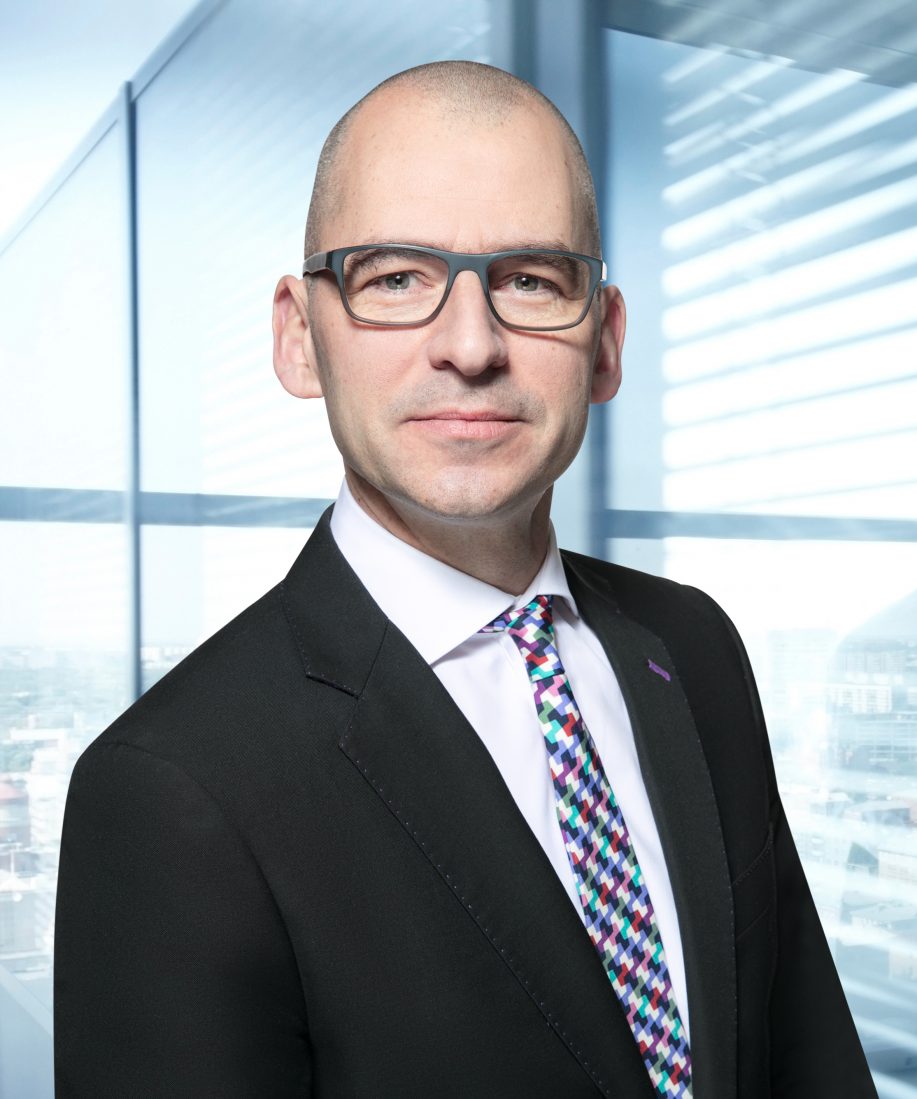
PROUT EMPLOYER Linklaters
“The advantage for our law firm is obvious: diverse teams are more multi-faceted, more creative and therefore more successful.”
Dr Sebastian Daub is a lawyer and partner at Linklaters in Frankfurt am Main. After his first state examination in law, his studies took him to Atlanta, where he obtained an LL.M before sitting the bar exam in New York. He then gained a doctorate (Dr jur.) and, after his legal internship, he joined Sullivan & Cromwell as an associate. Two years later, he moved to Linklaters in the same role, where he went on to become a managing associate at first, and then a partner. He specialises in private equity, M&A and joint ventures as well as corporate law.
Diversity has long been a topic at large law firms in English-speaking countries. How are your staff responding to the fact that the focus is now being placed on LGBTIQ?
Positively for the most part! Some colleagues question whether it’s actually still necessary to get involved in these issues. – If you’re a heterosexual man, it may be harder to see whether and in what form LGBTs are actually still battling against prejudice and perhaps discrimination or don’t dare to come out simply because they don’t know how their colleagues will react. To be honest, it has long been overdue that we offered a dedicated network for our German LGBT employees in addition to our successful “Ally” diversity programme and thus made another statement in support of openness and diversity. No one should feel that they have to hide their identity. And the advantage for our law firm is obvious: diverse teams are more multi-faceted, more creative and therefore more successful. Besides, in a presentation Jean-Luc recently gave to us, he quoted a study according to which the majority of LGBTs still hide their sexual orientation at work and about a quarter of their energy is wasted on building a construct for the outside world. This is alarming and at the same time encouraging. It’s encouraging because we can obviously further increase our productivity by creating an open environment. That’s a convincing argument even for people who are not affected.
We expect the PROUT EMPLOYER cooperation to give us new impetus and new ideas. As lawyers, we need our networks, and the cooperation creates another network and helps our LGBTs to be even more successful professionally.
What objectives are you pursuing with the PROUTEMPLOYER cooperation?
Although we have already set up an LGBT network, we see a lot of potential to expand our firm’s work to combat homophobia and transphobia and thus to further improve our corporate culture. We want to send a clear signal both internally and externally. We expect the PROUT EMPLOYER cooperation to give us new impetus and new ideas. As lawyers, we need our networks, and the cooperation creates another network and helps our LGBTs to be even more successful professionally. – And here again: it’s win-win!
What activities are there at Linklaters in terms of LGBTIQ diversity?
We have been championing diversity in our firm for many years. We’ve had established LGBT communities for a long time in London, New York, Tokyo and other locations of our law firm. In Germany, we also want to extend our network for our LGBT employees, which is still quite new there, and establish it as a platform on which colleagues can get updates on current topics, events, news, etc. or which they can simply use to share their experiences. This is particularly helpful for new colleagues who don’t yet know the environment. Interconnection within the Linklaters organisation is equally important. A good example is Hong Kong, where last year the commitment of our colleagues was awarded the Silver Standard of the LGBT+ Index by the Community Business organisation. This makes us the first and so far the only Magic Circle law firm to have been awarded the Silver Standard. That’s what I want to achieve in Germany, too.
You are the diversity sponsor at Linklaters. Why is it a matter close to your heart to support LGBTIQ people?
I have too many friends, even of my generation, who struggle with the issue of coming out and suffer from being different from what they pretend to be. In my view, the legal sector in particular still lags behind the rest of society here. However, each of us can fully develop our potential and talents only if we are accepted and valued by the people around us (both colleagues and clients). I try to play a small part in this through my contribution as diversity partner at Linklaters.
What do you think are the challenges with regard to LGBTIQ diversity in your firm in the coming years?
Our goal is to achieve a corporate culture in which sexual orientation is simply irrelevant because it doesn’t matter whether a colleague etc. is “straight” or LGBT. And “it doesn’t matter” doesn’t mean ignorance, but openness. In my view, the challenge here is to ensure that the discussion which we need for opening up these topics doesn’t cause a backlash from individuals.
